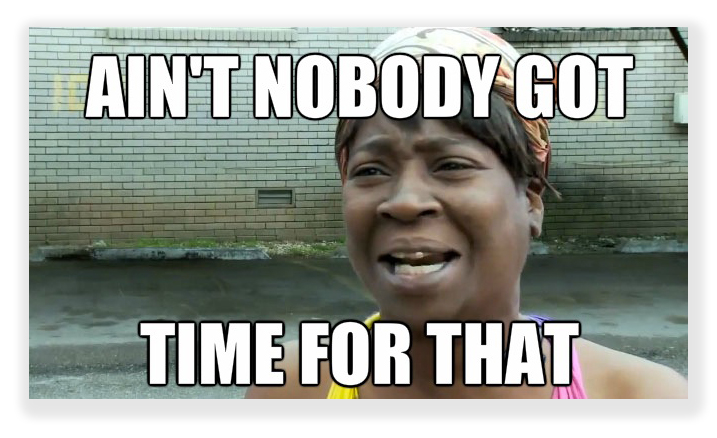We’re still doing a weekly newsletter … we’re just posting pieces of it every day. The news is fresher this way …
NOBODY GOT TIME FOR THAT
Andre Williams’s “out” date is coming up March 6, just as the buds start popping on the trees and the crocuses bloom. The only hitch is that the March 6th Andre is looking forward to falls in the year 2030.

Nevertheless, he’s a guy who plans ahead. That’s why he petitioned his district court to revise some conditions of his supervised release once the March 6th he’s looking toward finally arrives in 14 years. His judge, not quite so forward-looking, told him to come back later, when the time that supervised release would begin was a little closer.
Under 18 U.S.C. §3583(e)(2), district judges have the authority to revise supervised release terms “at any time.” Andre argued that because a judge may act at any time, he or she must act when a defendant requests him or her to do so. The district judge thought otherwise, observing that in the 14 years between now and Andre’s scheduled release date, “he may have totally other issues that he might want to deal with regarding supervised release.”
In a decision released several weeks ago as a summary order but reissued as an opinion yesterday, the 7th Circuit told Andre that “may” doesn’t mean “must.”
The appeals panel admitted that Andre “is entitled to know, before he leaves prison, what terms and conditions govern his supervised release. We would be reluctant to allow a judge to deem premature a request in the final year or two of imprisonment. But treating a request 14 years in advance as premature, and requiring the prisoner to make all potential arguments at one time in the year or so before release, is a sound exercise of discretion.”
The Circuit also observed that the district judge could have also noted the governing law may change between now and 2030, which might moot or even enhance Andre’s supervised release terms. He may as well wait to get the full benefit of the law at the time he needs it.
United States v. Williams, Case No. 16-1913 (7th Cir. Sept. 6, 2016)

